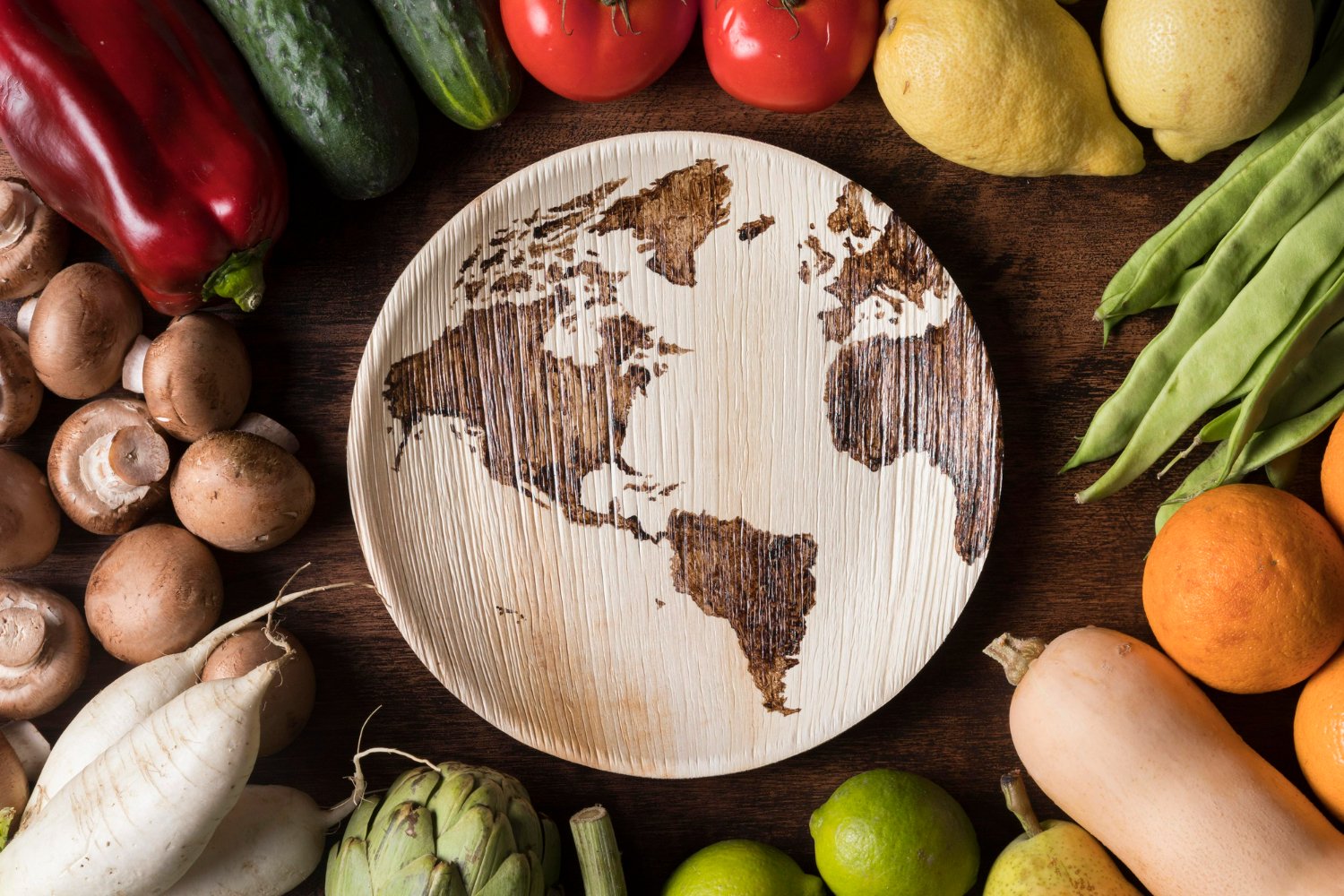Plant-Based Eating in the UAE: Addressing Food Security and Sustainability
The UAE is increasingly aware of its food security and water supply challenges, which mirror global concerns. With the current trends in food consumption and water usage proving unsustainable, there is a growing shift towards plant-based diets. This article explores the factors driving this shift, the benefits of plant-based eating, and the challenges that come with it. By examining expert insights and market trends, we can understand how plant-based diets are becoming a crucial part of the UAE's strategy for a sustainable future.
The UAE is highly conscious of its food security and water supply challenges, which are also global concerns. If the current global trends in food consumption and water usage persist, they will become unsustainable.
Triton Market Research forecasts that the plant-based food and beverage market in the Middle East and Africa will expand at a compound annual growth rate (CAGR) of 8.35 percent by 2028. This growth mirrors global trends and is fueled by regional adaptations to cater to the area's distinct culinary tastes and cultural context.
The United Nations' Food and Agriculture Organization (FAO) reported that around 733 million people experienced hunger in 2023, equating to about one in eleven people worldwide. This growing food insecurity is driven by conflicts, economic shocks, and climate extremes.
The World Resources Institute (WRI) reports that 25 percent of the global population lives in regions of extreme water stress, where over 80 percent of available surface and groundwater is used annually. This high water consumption threatens long-term water availability and agricultural production, impacting food security.
A significant portion of the world's agricultural output is used to feed livestock rather than directly feeding people. Approximately one-third of global cropland is dedicated to producing animal feed, including grains like corn and soybeans.
The WRI notes that only 55 percent of the total calories grown globally for food are consumed directly by humans, while 36 percent is used for animal feed, with the remainder going towards biofuels and other uses. This inefficiency in calorie conversion from crops to livestock products raises concerns about food security and environmental sustainability. Shifting towards plant-based diets can help address these inefficiencies.
The global protein supply issue, driven by a growing population, high meat demand, and the environmental impact of traditional livestock farming, is becoming unsustainable. Raising livestock requires significant land, water, and feed resources, contributing to deforestation, greenhouse gas emissions, and biodiversity loss. As the population grows, meeting protein needs through conventional animal-based sources becomes increasingly difficult.
Plant-based diets offer a sustainable solution by providing protein sources that require fewer resources and produce lower emissions. Legumes, fruits, nuts, seeds, and innovative plant-based alternatives like soy and pea protein are efficient and sustainable options. By adopting plant-based proteins, we can reduce the strain on natural resources, lower greenhouse gas emissions, and create a more sustainable food system capable of supporting a growing global population.
Environmental concerns are also driving the shift towards plant-based diets. The UAE's commitment to sustainability and increasing awareness of climate change have influenced consumer choices. With meat production linked to high greenhouse gas emissions and excessive water consumption, many consumers are rethinking their dietary habits to reduce their carbon footprint.
Plant-based diets, which require fewer natural resources and produce less pollution, align closely with the UAE's environmental goals. Embracing plant-based eating is becoming an effective way to contribute to national sustainability efforts, from reducing food waste to conserving water resources.
The UAE has seen a growing array of plant-based products and dining options, catering to a diverse and evolving consumer base. Local and international brands are providing exciting choices and innovative offerings. Açaí bowls, for example, have gained popularity in gyms, spas, and cafés, often customized with toppings like granola, seeds, and fresh fruits to offer a balanced meal.
Beyond traditional offerings, new plant-based products are emerging, including localized meat alternatives, energy bars, and desserts that cater to health-conscious consumers. This surge in options reflects the UAE's openness to culinary experimentation and its readiness to embrace global food trends.
Despite promising growth, challenges remain. Some consumers perceive plant-based eating as expensive or difficult to maintain. However, as the movement gains traction and economies of scale improve, the cost of plant-based products is expected to decrease. There is also a growing need for more education on the benefits of plant-based diets, as misconceptions around nutrition and affordability persist.
This knowledge gap presents an opportunity for industry players to lead the conversation around plant-based eating. By raising awareness and providing accessible products, brands can encourage more people to explore healthier and sustainable dietary choices.
The future of plant-based eating in the UAE is promising, with more consumers choosing plant-based diets for health, ethical practices, and sustainability reasons. As awareness continues to grow and companies innovate to meet the demands of a dynamic market, the vegan movement is likely to expand further.


